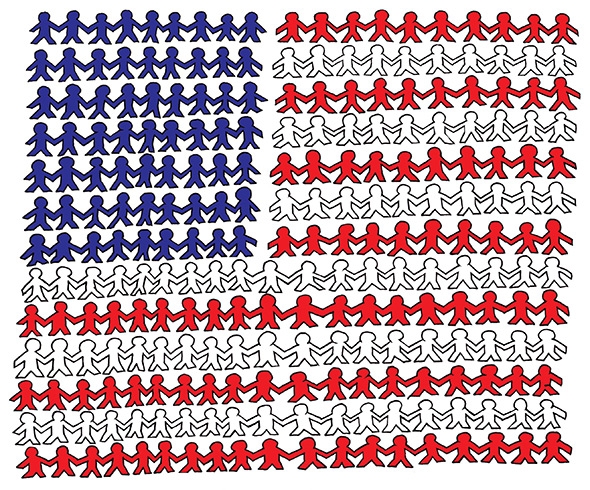The Melting Pot Is Broken

How slowing down immigration could help us build a more cohesive and humane society.
I’m obsessed with the idea of America as a melting pot. We owe the term to Israel Zangwill, who wrote a mostly forgotten play of the same name in 1908. (I remember it like it was yesterday …) The play was forgettable, but the snazzy metaphor was not. “Yes, East and West, and North and South, the palm and the pine, the pole and the equator, the crescent and the cross—how the great Alchemist melts and fuses them with his purging flame!” How indeed!
Much to my chagrin, the melting pot metaphor has been out of style for decades. Way back in 1963, Nathan Glazer and Daniel Patrick Moynihan famously lamented that in New York City, at least, we were already “beyond the melting pot,” as various ethnic groups maintained their distinctiveness generation after generation. In 1972, Michael Novak wrote Rise of the Unmeltable Ethnics, a quirky defense of ethnic particularity and lower-middle-class cultural conservatism against the (alleged) homogenizing influence of academic liberalism. Then, of course, there was the rise of multiculturalism, which held that diversity ought to be celebrated, and that there was something both tragic and unjust about the expectation that members of ethnic minority groups ought to surrender what separates them from the cultural mainstream. America is no longer a melting pot, we’re told. It’s more like a salad bowl, full of ingredients that retain their unique flavors.
As delicious as this multiethnic salad sounds—more croutons, please—I continue to be the melting pot’s biggest fan. As a consequence, I’ve gone from being a rah-rah enthusiast for mass immigration to one who is more skeptical of its virtues. That’s because I think the melting and fusing of different ethnic groups is essential to building a more cohesive and humane society, and that slowing down immigration would help this process along. ...



